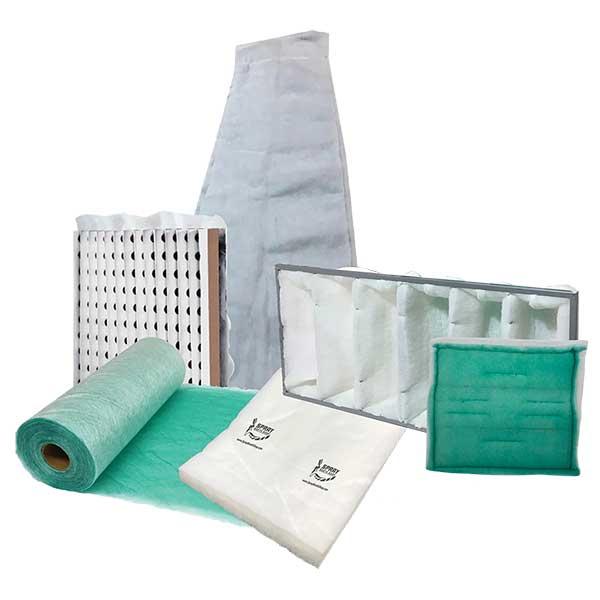When it comes to maintaining a clean, safe, and efficient painting environment, spray booth filters play a vital role. Whether you operate in the automotive, woodworking, or industrial painting industry, the proper spray booth filter ensures high-quality finishes, compliance with safety regulations, and protection for both workers and equipment. In this guide, we’ll explore the different types of spray booth filters, their functions, how often they should be replaced, and why investing in the right filter is essential for long-term efficiency.
Understanding Spray Booth Filters
Spray booth filters are designed to trap overspray, dust, and harmful airborne particles during painting operations. They not only protect the environment but also ensure the final product has a smooth, flawless finish. Without efficient filters, contaminants can compromise paint quality, pose health risks, and damage equipment.
Types of Spray Booth Filters
Intake Filters
Intake filters are responsible for cleaning the incoming air that enters the booth. By trapping dust, dirt, and debris, these filters ensure that only clean air circulates, reducing imperfections in the coating process.
Exhaust Filters
Exhaust filters capture paint overspray and hazardous fumes before they leave the booth. This prevents environmental pollution and protects workers from inhaling harmful particles.
Ceiling Filters
Ceiling filters maintain consistent airflow and air quality inside the booth. By distributing clean air evenly, they support optimal painting conditions and reduce the chance of defects.
Specialty Filters
Some spray booths require specialty filters, such as carbon filters for odor control or HEPA filters for industries with strict air quality standards.
Benefits of Using High-Quality Spray Booth Filters
Improved Air Quality
Filters capture harmful particles, ensuring a healthier workspace for operators.
Compliance with Safety Standards
Using the correct filters helps businesses meet environmental and occupational health regulations.
Better Finishing Results
Cleaner air reduces the risk of contaminants on painted surfaces, resulting in a smoother, professional finish.
Equipment Protection
Filters prevent paint particles and dust from building up in the booth’s ventilation system, extending equipment lifespan.
How Often Should Spray Booth Filters Be Replaced?
The frequency of filter replacement depends on booth usage and the type of filter installed. In high-production environments, intake and exhaust filters may need replacing weekly, while in lower-volume operations, they can last longer. Regular inspection is essential—once a filter appears clogged or airflow is reduced, it’s time to replace it.
Spray Booth Filter Maintenance Tips
Regular Inspections
Check filters frequently for signs of clogging, wear, or damage.
Proper Installation
Ensure filters are installed correctly to prevent bypass, which allows unfiltered air to escape.
Record Keeping
Maintain a replacement schedule to ensure filters are changed at optimal intervals.
Use Compatible Filters
Always select filters designed for your specific booth to guarantee proper performance.
Final Thoughts
A spray booth filter is more than just a maintenance component—it is a critical element that ensures safety, compliance, and high-quality results. By choosing the right spray booth filters, performing regular maintenance, and replacing them on schedule, businesses can maintain efficiency and deliver flawless finishes every time.
FAQs
Q1: What happens if I don’t replace my spray booth filters regularly?
Clogged filters reduce airflow, compromise air quality, and increase health risks. They also lead to poor-quality finishes and possible non-compliance with safety regulations.
Q2: Can I clean and reuse spray booth filters?
Most spray booth filters are designed for single use. Cleaning may damage the filter media, reducing effectiveness. It’s best to replace them with new ones.
Q3: How do I know which spray booth filter my booth requires?
Check your spray booth’s manufacturer specifications. Different booths may require intake, exhaust, ceiling, or specialty filters.
Q4: Do spray booth filters help reduce odors?
Yes, carbon filters and other specialty options can help control odors and improve workplace comfort.
Q5: Are all spray booth filters the same size?
No, spray booth filters come in different sizes and specifications depending on the booth design and application. Always select the correct size for proper fit and performance.

